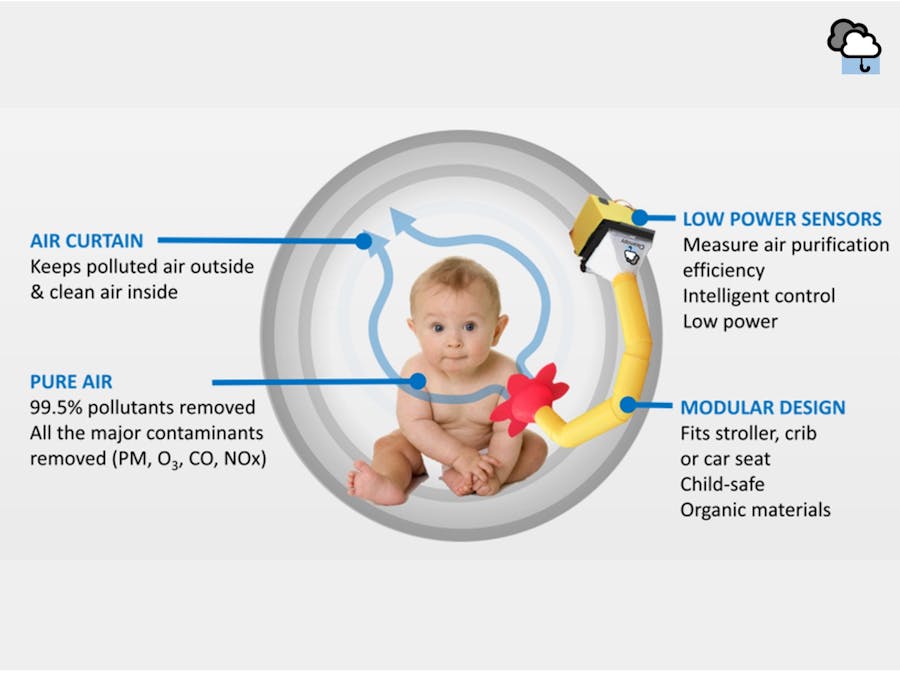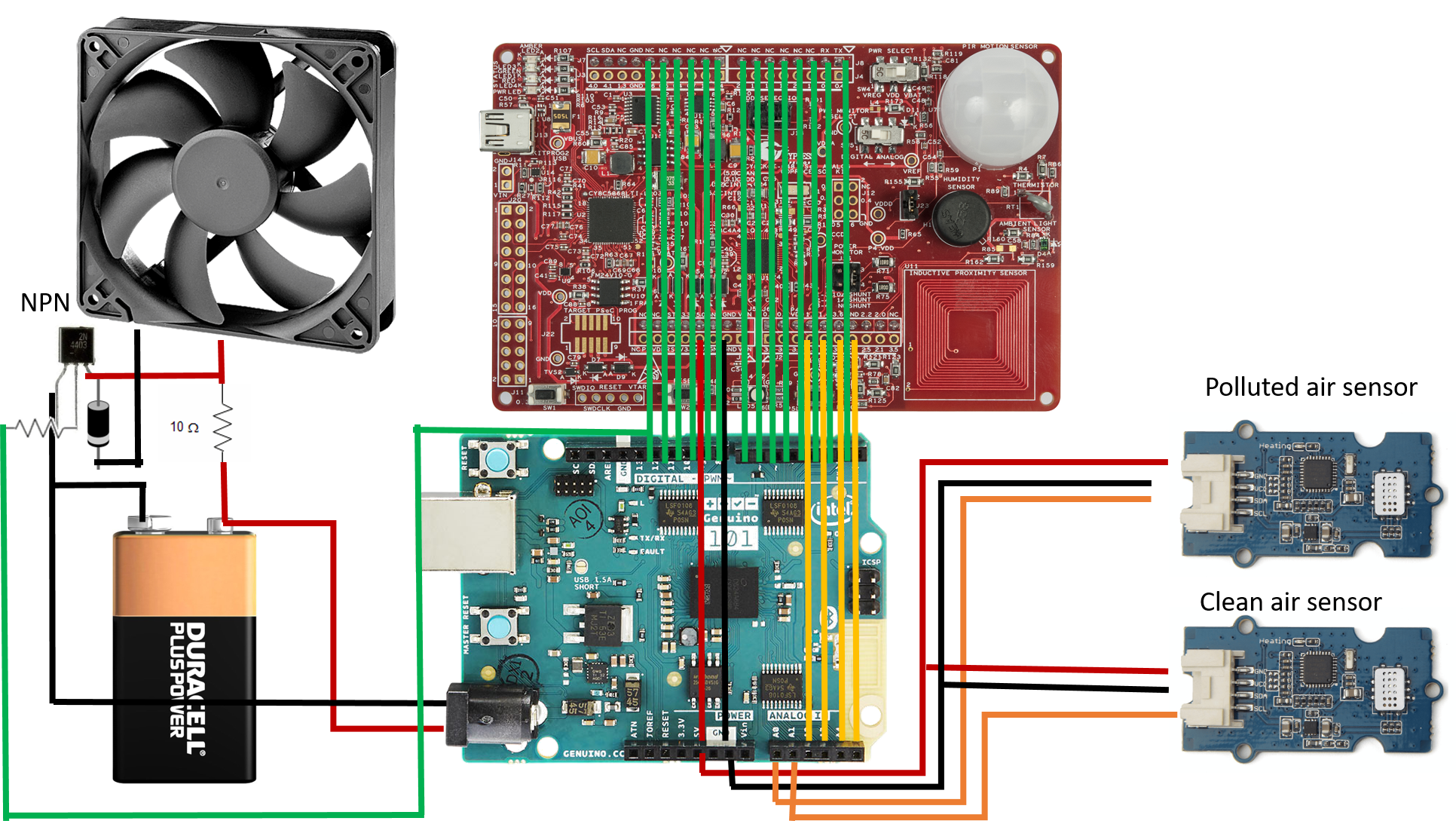#include <Wire.h> // Wire library that helps the Arduino with i2c
#include <Streaming.h> // Streaming C++-style Output with Operator << from http://arduiniana.org/libraries/streaming/
//------------------------------------------------------------------------------
// CONFIGURATION
//------------------------------------------------------------------------------
// define FAST sensor sampling interval
unsigned long INTERVAL_FAST = 5000; // sample duration (ms)30s, david holstius used 60000
unsigned long last_time_fast_ms; // time of last check/output
String s3 = "C12=";
String s = "";
String si2="";
String sd="SF";
//int x=0;
char inChar;
int i1 = 0;
int i2 = 0;
int OK = 0;
int SIGNAL = 0;
//int reset;
//int w;
int sdc=0;
//int r=0;
//------------------------------------------------------------------------------
// COMPONENT SETUP
//------------------------------------------------------------------------------
//-------------------------------------------------------------------------- MUX
int MUX_BASE = 0; // analog pin to interact with mux
int MUX_CONTROL[] = {
2, 3, 4, 5}; // digital pins for mux pin selection
int mux(int channel) {
// select channel on multiplexer
for (int i = 0; i < 4; i++) {
digitalWrite(MUX_CONTROL[i], bitRead(channel, i));
}
// return base pin for analogRead/Write to use
return(MUX_BASE);
}
void setup_mux() {
// set digital pins controlling multiplexer to OUTPUT
for (int i = 0; i < 4; i++) {
pinMode(MUX_CONTROL[i], OUTPUT);
}
}
//------------------------------------------------------------ SD card (logging)
#include "SD.h" //SD library to talk to the card
#define SD_PIN 10 // for the data logging shield, we use digital pin 10 for the SD cs line
#define SD_INTERVAL_SYNC 1000 // mills between calls to flush() - to write data to the card
uint32_t sd_last_time = 0; // time of last sync()
File logfile; // the logging file
// setup
void setup_sd() {
//digitalWrite(SD_PIN, HIGH);
pinMode(SD_PIN, OUTPUT); // default chip select pin is set to output
if (!SD.begin(SD_PIN)) { // see if the card is present and can be initialized
sdc=1;
return; // don't do anything else
}
// create a new file, LOGGERnnnn.csv (nnnn is a number), make a new file every time the Arduino starts up
char filename[] = "0000.csv";
for (uint16_t i = 0; i < 10000; i++) {
for (int j = 0; j < 4; j++) {
filename[4-j-1] = ((int)(i / pow(10, j)) % 10) + '0';
}
if(!SD.exists(filename)) { // only open a new file if it doesn't exist
logfile = SD.open(filename, FILE_WRITE); // Unix style command flags - logfile.open() procedure FILE_WRITE - create the file and write data to it
break; // leave the loop!
}
}
if (!logfile) {
//logfile<<"could not create file"<<endl;
sdc=1;
}
sd_last_time = millis();
}
// --------------------------------------------------- GPRS setup
void setupIP()
{
SIGNAL=0;
i1=0;
while (SIGNAL==0) {
delay(10000);
logger();
for (int i=0; i<5; i++)
{
Serial.println("AT+CGATT?"); //this command is used to attach/detach from GPRS service. the ? should say if you are physically connected i think
delay(2000);
ShowSerialData();
}
logger();
if (i1==0) {
Serial.println("AT+CPOWD=1"); //power off the module
delay(5000);
SIM900power();
}
}
Serial.println("AT+CIPSHUT"); //reset the ip session if any
delay(2000);
// Serial.println("AT+CIPSTATUS"); //check if the ip stack is initialized
// delay(2000);
Serial.println("AT+CIPMUX=0"); //this is to set the connection mode to single i.e 0
delay(2000);
Serial.println("AT+CSTT=\"internet.com\",\"wapuser1\",\"wap\""); //start task and set APN, APN is the access point name which interfaces 3G with the internet
delay(1000);
Serial.println("AT+CIICR"); //bring up wireless connnection with GPRS
delay(3000);
Serial.println("AT+CIFSR"); //get local IP address
delay(2000);
Serial.println("AT+CIPSPRT=0"); //set prompt of > when sending data
delay(3000);
Serial.println("AT+CIPSTART=\"tcp\",\"m2.exosite.com\",\"80\""); //start up TCP connection
delay(3000);
}
//------------------------------------------------------ Chronodot (timekeeping)
#include "Chronodot.h" // Chronodot RTC library
Chronodot RTC;
// setup
void setup_rtc() {
// kick off the RTC initializing the Wire library - poking the RTC to see if its alive
Wire.begin();
RTC.begin(); // Chronodot
}
void log_time2() {
DateTime now = RTC.now();
int year = now.year();
int month = now.month();
int day = now.day();
int hours = now.hour();
int mins = now.minute();
int secs = now.second();
logfile << "\"" << year;
logfile << "-" << ((month<10)?"0":"") << month;
logfile << "-" << ((day<10)?"0":"") << day;
logfile << " " << ((hours<10)?"0":"") << hours;
logfile << ":" << ((mins<10)?"0":"") << mins;
logfile << ":" << ((secs<10)?"0":"") << secs;
logfile << "\",";
}
//---------------------------------------------------------- DHT22 (temperature)
#include "DHT.h"
#define DHT_PIN 7
#define DHT_TYPE DHT22 // DHT 22 (AM2302)
DHT dht(DHT_PIN, DHT_TYPE);
// setup
void setup_dht() {
dht.begin();
}
// log
void log_dht() {
// Reading temperature or humidity takes about 250 milliseconds!
// Sensor readings may also be up to 2 seconds 'old' (its a very slow sensor)
int h = dht.readHumidity();
int t = dht.readTemperature();
// check if returns are valid, if they are NaN (not a number) then something went wrong!
if (isnan(t) || isnan(h)) {
// log_error("DHT22", "failed to read");
}
else {
logfile<<h<<",";
logfile<<t<<",";
}
s+=String(h)+",";
s+=String(t)+",";
}
//----------------------------------------------------------- Sinyei (particles)
#define SNY_PIN 8
unsigned long sny_duration;
unsigned long sny_lowocc_us = 0; // sum of time spent LOW
unsigned long SNY_INTERVAL_ms = 30000; // sample duration (ms)30s, david holstius used 60000
unsigned long sny_last_time; // time of last serial dump
// setup
void setup_sinyei() {
pinMode(SNY_PIN, INPUT);
sny_last_time = millis();
sny_lowocc_us = 0;
}
// reading
void log_sinyei(unsigned long lowocc_us, unsigned long sampletime_ms) {
float ratio;
ratio = lowocc_us / (sampletime_ms * 1000.0) * 100.0;
logfile<<ratio<<",";
si2=String(ratio);
}
//------------------------------------------------------------ Sharp (particles)
// connected to analog 1 and controlled by digital 9
#define SRP_PIN_DUST 1
#define SRP_PIN_LED 9 // led Power is any digital pin on the arduino connected to Pin 3 on the sensor (can be 2, 4,)
int srp_delay1_us = 280; // delays are in microseconds
int srp_delay2_us = 40;
int srp_delayoff_us = 9680;
// setup
void setup_sharp() {
pinMode(SRP_PIN_LED, OUTPUT);
}
// log
void log_sharp() {
digitalWrite(SRP_PIN_LED, LOW); // power on the LED
delayMicroseconds(srp_delay1_us);
int dustVal = analogRead(SRP_PIN_DUST); // read the dust value
delayMicroseconds(srp_delay2_us);
digitalWrite(SRP_PIN_LED, HIGH); // turn the LED off
delayMicroseconds(srp_delayoff_us);
//
logfile<<dustVal<<",";
s+=String(dustVal);
}
// ------------------------------------------------------- voltage
long read_vcc() {
// Read 1.1V reference against AVcc
// set the reference to Vcc and the measurement to the internal 1.1V reference
#if defined(__AVR_ATmega32U4__) || defined(__AVR_ATmega1280__) || defined(__AVR_ATmega2560__)
ADMUX = _BV(REFS0) | _BV(MUX4) | _BV(MUX3) | _BV(MUX2) | _BV(MUX1);
#elif defined (__AVR_ATtiny24__) || defined(__AVR_ATtiny44__) || defined(__AVR_ATtiny84__)
ADMUX = _BV(MUX5) | _BV(MUX0);
#elif defined (__AVR_ATtiny25__) || defined(__AVR_ATtiny45__) || defined(__AVR_ATtiny85__)
ADMUX = _BV(MUX3) | _BV(MUX2);
#else
ADMUX = _BV(REFS0) | _BV(MUX3) | _BV(MUX2) | _BV(MUX1);
#endif
delay(2); // Wait for Vref to settle
ADCSRA |= _BV(ADSC); // Start conversion
while (bit_is_set(ADCSRA,ADSC)); // measuring
uint8_t low = ADCL; // must read ADCL first - it then locks ADCH
uint8_t high = ADCH; // unlocks both
long result = (high<<8) | low;
result = 1125300L / result; // Calculate Vcc (in mV); 1125300 = 1.1*1023*1000
return result; // Vcc in millivolts
}
//------------------------------------------------------- Other GPRS functions
void SIM900power()
// software equivalent of pressing the GSM shield "power" button
{
pinMode (6,OUTPUT);
digitalWrite(6,LOW);
delay(1000);
digitalWrite(6, HIGH);
delay(2000);
digitalWrite(6, LOW);
delay(3000);
}
void TCPDisconnect()
{
Serial.println("AT+CIPCLOSE"); //close the TCP connection
delay(5000);
//ShowSerialData();
}
//------------------------------------------------------------------------------
// SETUP
//------------------------------------------------------------------------------
void(* resetFunc) (void) =0;
void setup(void) {
SIM900power();
// setup serial
Serial.begin(19200);
setupIP();
//TCPConnect();
setup_rtc(); // all logging depends on RTC, so start it up first
setup_sd();
setup_mux();
setup_dht();
setup_sinyei();
setup_sharp();
// set fast sensor clock
last_time_fast_ms = millis(); // get the current time
s = s3;
}
//------------------------------------------------------------------------------
// MAIN LOOP
//------------------------------------------------------------------------------
void loop() {
logger();
s+=","+si2;
if (sdc==1) {
s+=","+sd;
sdc=0;
}
si2="";
sendtoExosite();
s=s3;
// reset clock to current time
last_time_fast_ms = millis();
//--------------------------------------------------------------- sync SD card
// write data to disk! Don't sync too often (2048 bytes of I/O SD card, a lot of power, takes time)
if ((millis() - sd_last_time) > SD_INTERVAL_SYNC) {
logfile.flush();
sd_last_time = millis();
}
}
void logger() {
sny_duration = pulseIn(SNY_PIN, LOW);
sny_lowocc_us += sny_duration;
//-------------------------------------- read/lMog Sinyei sensor (30s interval)
if ((millis() - sny_last_time) > SNY_INTERVAL_ms) {
// log Sinyei
log_sinyei(sny_lowocc_us, millis() - sny_last_time);
// reset
sny_lowocc_us = 0;
sny_last_time = millis();
}
logfile<<endl;
log_time2();
log_dht();
log_sharp();
int num_sensors = 16;
int sensor_value;
for (int channel = 0; channel < num_sensors; channel++) {
sensor_value = analogRead(mux(channel));
if (channel==0 || channel==1 || channel==2 || channel==4 || channel==5 || channel==6 || channel==7 || channel==9 || channel==10 || channel==11){
logfile<<sensor_value<<",";
s+=",";
s+=String(sensor_value);
}
}
delay(100);
}
void sendtoExosite()
{
int num;
String le;
num=s.length();
le=String(num);
i1=0;
i2=0;
OK=0;
Serial.println("AT+CIPSEND"); //begin sending data to remote server
delay(1700); //was 2000
Serial.flush();
ShowSerialData(); // i definitely need to read this response since it will let me know whether the data was sent or not
Serial.println("POST /onep:v1/stack/alias HTTP/1.1");
delay(50);
Serial.println("Host: m2.exosite.com");
delay(50);
Serial.println("X-Exosite-CIK: 1e6012249cd51557a55b6ec8305543a53ec93d83");
delay(50);
Serial.println("Accept: application/x-www-form-urlencoded; charset=utf-8");
delay(50);
Serial.println("Content-Length: "+le);
delay(50);
Serial.println("Content-Type: application/x-www-form-urlencoded");
delay(50);
Serial.println("");
delay(50);
Serial.println(s); //this is where the data I want to send goes
delay(50);
Serial.flush();
delay(500); //was 600
ShowSerialData();
Serial.println((char)26);
delay(2500); //was 2700
/*
This part of the code is to troubleshoot if the data is not sending
*/
if (OK==0) //if the response did not read 'OK' then that means that the data did not send and is probably not connected so I have to reconnect
{
Serial.println("NOT WORKING");
TCPDisconnect();
setupIP();
//TCPConnect();
}
}
void ShowSerialData() // this is where I view the response and index OK if I am using software serial or just index OK if i am using hardware serial
{
while(Serial.available()!=0)
{
inChar = Serial.read();
if (inChar=='1') {
SIGNAL++;
}
if (inChar=='O') {
i2=i1;
}
if (inChar=='K' && i1-i2==1) {
OK++;
}
i1++;
}
}




_baVEVgguW1.jpg?auto=compress%2Cformat&w=48&h=48&fit=fill&bg=ffffff)








Comments
Please log in or sign up to comment.